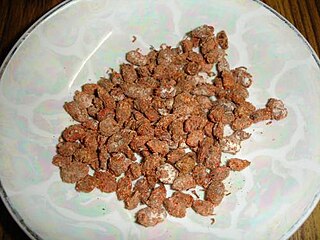Related Research Articles

Ayurveda is an alternative medicine system with historical roots in the Indian subcontinent. The theory and practice of Ayurveda is pseudoscientific. Ayurveda is heavily practiced in India and Nepal, where around 80% of the population report using it.
Maharishi Vedic Approach to Health (MVAH) is a form of alternative medicine founded in the mid-1980s by Maharishi Mahesh Yogi, who developed the Transcendental Meditation technique (TM). Distinct from traditional ayurveda, it emphasizes the role of consciousness, and gives importance to positive emotions. Maharishi Ayur-Veda has been variously characterized as emerging from, and consistently reflecting, the Advaita Vedanta school of Hindu philosophy, representing the entirety of the ayurvedic tradition.

The history of alternative medicine refers to the history of a group of diverse medical practices that were collectively promoted as "alternative medicine" beginning in the 1970s, to the collection of individual histories of members of that group, or to the history of western medical practices that were labeled "irregular practices" by the western medical establishment. It includes the histories of complementary medicine and of integrative medicine. "Alternative medicine" is a loosely defined and very diverse set of products, practices, and theories that are perceived by its users to have the healing effects of medicine, but do not originate from evidence gathered using the scientific method, are not part of biomedicine, or are contradicted by scientific evidence or established science. "Biomedicine" is that part of medical science that applies principles of anatomy, physics, chemistry, biology, physiology, and other natural sciences to clinical practice, using scientific methods to establish the effectiveness of that practice.

Unani or Yunani medicine is Perso-Arabic traditional medicine as practiced in Muslim culture in South Asia and modern day Central Asia. Unani medicine is pseudoscientific. The Indian Medical Association describes Unani practitioners who claim to practice medicine as quacks.
Southern California University of Health Sciences (SCUHS) is a private university located in Whittier, California and specializing in the health sciences. Academics are organized into four colleges and schools: the Los Angeles College of Chiropractic, the College of Eastern Medicine, the College of Science & Integrative Health, and the School of Professional Studies. The university is accredited by the WASC Senior College and University Commission.

Siddha medicine is a traditional medicine originating in Southern India. It is one of the oldest systems of medicine in India.
Institute of Medicine (IoM), in the capital city Kathmandu, is the premier medical institution of Nepal.
Bachelor of Ayurvedic Medicine and Surgery (B.A.M.S.) is a professional degree focused on Ayurveda offered in India, Nepal, Bangladesh, and Sri Lanka.
The Ministry of Ayush, a ministry of the Government of India, is responsible for developing education, research and propagation of indigenous and alternative medicine systems in India. Ayush is a name devised from the names of the alternative healthcare systems covered by the ministry: Ayurveda, Yoga & naturopathy, Unani, Siddha, and Homeopathy.

Vaidyaratnam Oushadhasala is an Ayurvedic Pharmaceutical company situated in Thaikkattussery, near Ollur. It is managed by Thaikkattusseri Eledathu Thaikkattu Family, one among the Ashtavaidya families of Kerala. Vaidyaratnam runs a NABH accredited nursing home by name Vaidyaratnam Nursing Home and an Ayurvedic Medical College apart from two ISO certified manufacturing plants in Thrissur and an R&D centre in Thaikkattussery, under the flagship of Vaidyaratnam. .
Nancy Lonsdorf is an American author and medical doctor who practices Maharishi Ayurveda. She received her training at Johns Hopkins School of Medicine and studied Ayurveda in Europe and India, and is the author of several books on the subject.
Bhushan Patwardhan is a Professor of Health Sciences, biomedical scientist, and ethnopharmacologist. He serves as the chairman of the Interdisciplinary AYUSH R&D Task Force on COVID-19. Until March 4, 2021, Patwardhan served as the Vice Chairman of the University Grants Commission, New Delhi, and Chairman of the Indian Council of Social Science Research.
Krishna Chandra Chunekar was an Indian ayurvedic practitioner and writer, known for the books he published, especially the translation of Vedic literature on herbal pharmacopeia. The Government of India awarded him, in 2013, the Padma Shri in medicine, the fourth highest civilian award, for his contributions.
Vaidya Balendu Prakash is an Indian Ayurveda practitioner. He is a former physician to the President of India and the founder of Paadav, a specialty Ayurvedic hospital in Dehradun. The Government of India awarded him the fourth highest civilian award of the Padma Shri in 1999.
Devendra Triguna is an Indian Ayurveda practitioner, known for his expertise in Pulse diagnosis. He is a former honorary physician to the President of India and the incumbent president of the Association of Manufacturers of Ayurvedic Medicine (AMAM) and the All India Ayurvedic Congress (AIAC). The Government of India awarded him the fourth-highest civilian award, the Padma Shri, in 1999, and followed it up, a decade later, with the third-highest honour of the Padma Bhushan in 2009.
The Nepal Medical Council (NMC) is a statutory body regulating medical education and registration of doctors in Nepal.
The Nepal Nursing Council (NNC) is a statutory body for establishing uniform and high standards of Nursing education in Nepal. The Council grants recognition of nursing qualifications, gives accreditation to Nursing schools, administers Nursing Licensing Exam (NLEN) and maintains the registration of Registered Nurses in Nepal.
KC is a surname anglicized as an abbreviation of Khatri Chhetri. The surname Khatri was historically legally labelled to the children of Brahmin fathers and Kshatriya (Chhetri) mothers after the introduction of Muluki Ain in 1854 by Jang Bahadur Rana of Nepal.
References
- ↑ "NAMC". www.namc.org.np.
- ↑ "Nepal Ayurvedic Medical Council NAMC". Edusanjal.
- ↑ "Nepal Ayurvedic Medical Council (NAMC)". 31 March 2013.
- ↑ "Health Policy" (PDF). lawcommission.gov.np.
- ↑ "NAMC". www.namc.org.np.